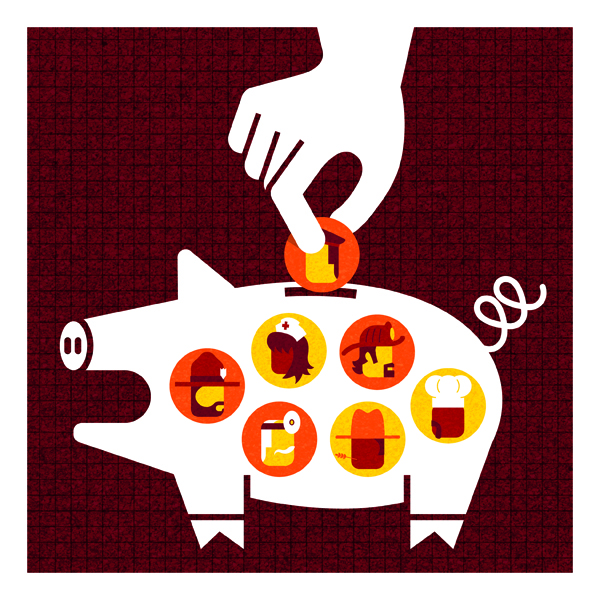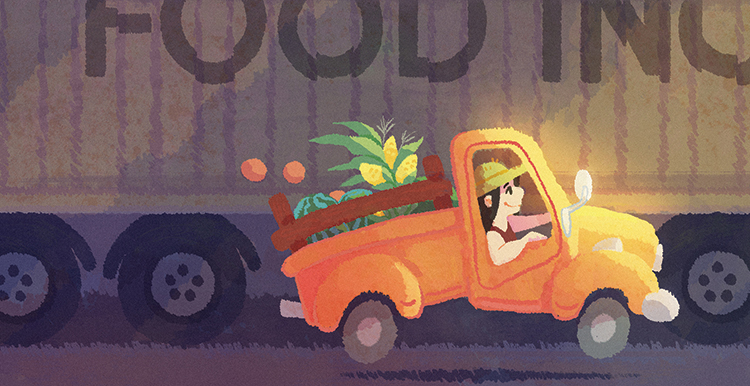
Don’t Panic, Philly–there’s work to do!
by Kenneth D. Smith, Ph.D.
Many Philadelphians feel anxious about the unfolding economic crisis. So far we’ve witnessed eye-popping declines in our 401Ks, unprecedented layoffs from CitiBank to City Hall, and planned cuts in City services, including libraries, firehouses, recreation centers and public swimming pools. Given the tense environment, is there any way to respond?
Well, to start, we can recognize that ours isn’t the first. Throughout history, different societies have weathered economic trials through their informal economy, a system of relationships that holds up when the formal economy declines. During Argentina’s financial meltdown, a thrifty, “do-it-yourself” culture created an urban gardening commerce that continues today. Laid-off workers took over shut-down factories and reopened them as successful co-ops that still survive today. Localized retail allowed for a credit and bartering system that supported merchants and families during tough times.
Russia’s cooperative “we’re all in this together” sensibility helped them cope with the financial meltdown that began during the Yeltsin years. Because the Soviet economy failed to produce an adequate supply of housing and market goods, Russians knew how to barter, share living space and work together in networks of family, friends and neighbors. Urban farming was integral to the non-market economy. According to some reports, over 85 percent of Russian professionals grew food on their household plots.
The United States has its own culture of resilience. Faced with the end of tobacco price supports, Kentucky farmers snapped back to economic life by utilizing land for expanded hay, grain and cattle, while developing markets for new crops. The Cajun community in Abbleville, LA, has withstood petroleum booms and busts because their kinship ties support families in need.
Philadelphia may not be Cajun country, but we have plenty of resources for our own informal economy. First, we still have districts dense with local businesses that employ our neighbors and offer high-quality goods and services. By shopping locally, we start to keep our dollars in the city. But local businesses and business associations can also work together by sharing resources, buying from one another and offering credit or bartering with loyal customers.
We may not have Russia’s urban gardening tradition, but we do have plenty of vacant land that can provide fresh, healthy fruits and veggies. Food can be grown just about anywhere, including rooftops and rail sides. Gardening, harvesting fruit trees and sharing and selling the produce cultivates both market and non-market exchanges in our communities. Our many pocket parks and playgrounds need a little attention these days, but if we fix them up, they become invaluable public spaces for neighborhood meetings, celebrations and marketplaces.
We are a large city, but we have strong neighborhoods, houses of worship, community development corporations and civic associations. By working together, these organizations create a network for exchanging volunteer time, group meals, encouragement or information about job leads. Over time, this network fosters trusting and mutually beneficial relationships that support an informal economy and rebuilds those basic connections that economic globalization has helped destroy. In the past, competition for grant dollars has created a lot of tension and mistrust in our nonprofit sector. However, if we refocus on collaboration and shared responsibility, we can spur a rich, local, sustainable economy based on a network of micro-enterprises.
Global capitalism has never been sustainable and we may soon witness its demise. While the dissolution of the financial sector is the most visible, we must not forget that the entire global economy is run on oil, cheap labor and global supply chains that place our food, jobs and environment at risk. A stronger, more sustainable future involves localized production, and that requires local economies of cooperation. So let’s roll up our sleeves and get working—together.




